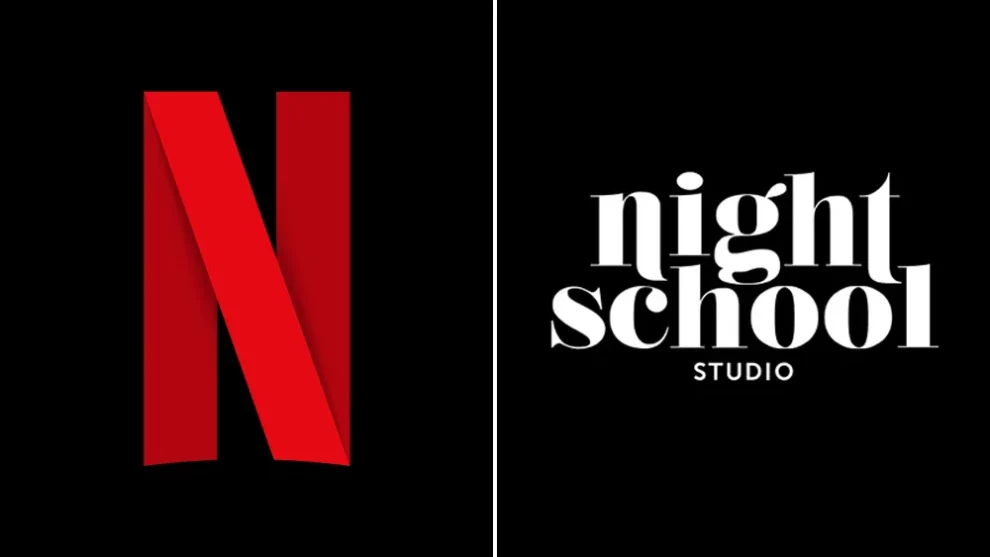Streaming giant Netflix has announced layoffs at Night School Studio, the acclaimed indie developer behind the critically praised game Oxenfree . The news comes as a shock to both the gaming community and industry insiders, raising questions about Netflix’s long-term commitment to original game development and its impact on independent studios. While details surrounding the cuts remain sparse, this move underscores growing challenges faced by creative teams operating under larger corporate umbrellas.
Night School Studio burst onto the scene in 2016 with Oxenfree , a supernatural thriller that captivated players with its haunting atmosphere, engaging narrative, and innovative multiplayer mechanics. The studio quickly established itself as a leader in storytelling-driven games, later expanding its portfolio with titles like Afterparty and The Novelist. In 2021, Netflix acquired Night School Studio as part of its push into interactive entertainment, aiming to diversify its offerings beyond traditional streaming content. At the time, the acquisition was heralded as a win-win for both parties—Netflix gained access to high-quality IP and talent, while Night School secured financial backing to pursue ambitious projects.
However, recent developments suggest that not all is well within this partnership. Though Netflix has yet to disclose exact numbers or reasons for the layoffs, insiders speculate that cost-cutting measures and shifting priorities may be at play. As competition intensifies in the gaming space, even deep-pocketed companies like Netflix are reevaluating their investments in niche markets such as indie game development. For many, this raises concerns about whether smaller studios can thrive under the scrutiny of profit-driven parent organizations.
A Shift in Strategy?
Since entering the gaming arena, Netflix has made significant strides, releasing dozens of mobile games tied to popular franchises like Stranger Things , Arcane , and The Witcher. These efforts have been met with mixed results, highlighting the complexities of transitioning from video streaming to interactive media. While some titles, such as Stranger Things: 1984 , found modest success, others struggled to resonate with audiences accustomed to AAA experiences or free-to-play alternatives.
In response to these challenges, Netflix appears to be refining its approach. Earlier this year, the company revealed plans to focus more heavily on console and PC gaming, signaling a departure from its initial emphasis on mobile platforms. This pivot aligns with broader trends in the industry, where subscription-based services increasingly compete for market share alongside established giants like Xbox Game Pass and PlayStation Plus. However, it also places added pressure on internal teams and acquired studios to deliver premium content capable of attracting subscribers.
For Night School Studio, this shift could mean adapting to new expectations or facing difficult decisions about resource allocation. Unlike other Netflix-owned properties, which often serve as tie-ins to existing shows and movies, Night School’s catalog stands largely independent. This autonomy has allowed the studio to experiment with unique concepts and mechanics but may also render it less immediately valuable in a results-driven environment.
Challenges Facing Indie Developers
The situation at Night School reflects broader issues confronting indie developers today. Despite rising demand for fresh, original content, many small studios struggle to secure funding and maintain creative control amidst increasing consolidation within the industry. Acquisitions by major corporations offer stability and resources but come with strings attached, forcing creators to navigate competing interests between artistic vision and commercial viability.
Netflix’s entrance into gaming initially seemed poised to address these concerns, positioning itself as a patron willing to support risk-taking and innovation. Yet, the reality proves far more complicated. Like any business, Netflix must justify its expenditures, particularly in an era marked by subscriber growth slowdowns and economic uncertainty. When profits fall short of projections, sacrifices inevitably follow—and unfortunately, those closest to the creative process often bear the brunt.
This dynamic isn’t unique to Netflix; similar scenarios have played out across the tech and entertainment sectors. High-profile layoffs at Twitter, Meta, and Amazon underscore how rapidly changing priorities can disrupt even seemingly secure positions. For workers at Night School Studio, the suddenness of the announcement likely compounds feelings of uncertainty and disillusionment.
What Does This Mean for Fans?
As fans of Night School’s work reflect on the implications of these layoffs, they may wonder what lies ahead for beloved franchises like Oxenfree . Will ongoing projects continue uninterrupted, or will scaled-back operations force delays or cancellations? And if Netflix doubles down on blockbuster-style releases, will there still be room for intimate, character-driven narratives that defined Night School’s early successes?
Though answers remain elusive, one thing is clear: the relationship between developers and publishers continues to evolve. Traditional models emphasizing upfront payments and licensing agreements coexist uneasily with newer frameworks rooted in collaboration and shared ownership. Finding equilibrium requires mutual respect and transparency—a tall order when external pressures loom large.
That said, history offers cause for optimism. Past layoffs have spurred innovation, inspiring displaced talents to form new ventures or join forces with like-minded collaborators. Such resilience exemplifies the spirit of indie game development, where passion frequently outweighs adversity. Should Night School emerge stronger from this trial, its journey could inspire others navigating similar waters.
Ultimately, the fate of Night School Studio hinges on Netflix’s willingness to invest in its potential. If the streaming giant views gaming as a core component of its future strategy, preserving talented teams and fostering creativity becomes paramount. Conversely, treating the division as ancillary risks alienating key stakeholders and undermining credibility.
For now, attention turns to upcoming announcements regarding Night School’s slate and organizational structure. Meanwhile, the broader gaming community watches closely, hoping this incident serves as a wake-up call rather than a harbinger of things to come. As Netflix charts its course through uncharted territory, balancing ambition with responsibility remains essential—not just for its bottom line, but for the countless creators and players whose lives intersect with its endeavors.
















Add Comment